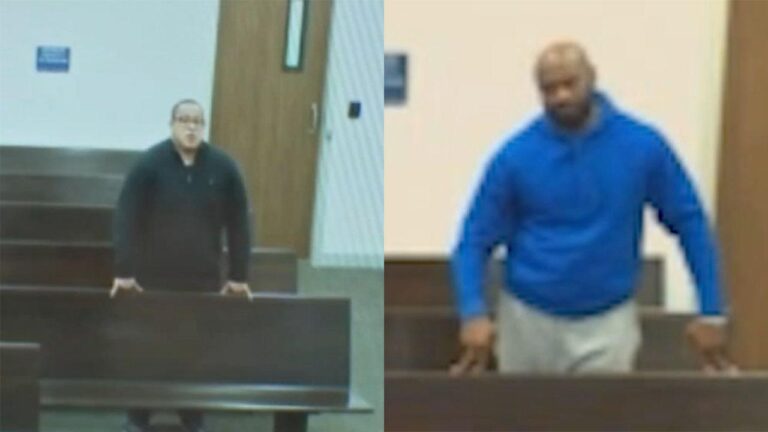Escalating Concerns Surrounding Teacher Certification Fraud in Houston
Recent reports from Houston Public Media reveal a surge in allegations involving Houston-area educators suspected of participating in a fraudulent teacher certification scheme. This growing investigation has uncovered potential irregularities affecting numerous school districts, prompting state education authorities to intensify their scrutiny of credentialing procedures. The emerging evidence raises critical questions about the reliability of teacher certification and the broader impact on educational integrity within the region.
Primary issues identified by investigators include:
- Submission of counterfeit documents during certification applications
- Collaboration between certification personnel and applicants to bypass regulations
- Noncompliance with mandatory examination requirements
- Insufficient background screening of prospective teachers
| School District | Number of Suspected Cases | Investigation Status |
|---|---|---|
| Houston ISD | 24 | Under Comprehensive Review |
| Pasadena ISD | 12 | Active Investigation |
| Sugar Land ISD | 7 | Initial Audit Phase |
Emerging Patterns in Teacher Credentialing Misconduct
Delving deeper into the ongoing probe, authorities have uncovered a troubling pattern of orchestrated fraud involving teacher certification across multiple Houston-area districts. The investigation reveals that some educators may have circumvented standard certification protocols through document falsification, unauthorized access to exam materials, and coordination with external facilitators promising accelerated credentialing. These findings cast doubt on the robustness of current certification safeguards and highlight vulnerabilities in the system.
Notable trends identified include:
- Concentration of violations in districts with high staffing demands, potentially leading to oversight gaps
- Frequent use of forged signatures and fabricated academic records to fulfill licensure criteria
- Evidence of organized groups collaborating to exploit certification loopholes
- Disparities between claimed qualifications and actual teaching performance data
| Type of Violation | Reported Incidents | Districts Impacted |
|---|---|---|
| Forgery of Documents | 28 | 5 |
| Unauthorized Exam Access | 15 | 3 |
| Collusive Networks | 12 | 4 |
| Misrepresentation of Credentials | 21 | 5 |
Impact on Houston Schools and Student Achievement
The unfolding certification scandal poses significant challenges for Houston-area school districts, compelling administrators to reevaluate hiring protocols and credential verification methods. To rebuild confidence among parents and the community, many districts are expected to initiate comprehensive compliance audits and strengthen collaboration with state education agencies. Enhanced background checks and ongoing professional development emphasizing ethical standards are likely to become standard practice.
Beyond administrative repercussions, the scandal threatens to disrupt classroom environments and student learning experiences. Questions surrounding teacher legitimacy can erode student confidence and engagement, while disciplinary actions against implicated educators may lead to staffing shortages. In response, districts may expand support services such as academic tutoring and mental health counseling, particularly in schools most affected by the controversy. Key strategic responses include:
- Rigorous credential verification and audit implementation
- Focused professional ethics training for educators and staff
- Augmented student support programs addressing academic and emotional needs
- Targeted recruitment efforts to address potential teacher vacancies
- Open communication strategies to restore public confidence
| Response Strategy | Anticipated Outcome | Implementation Timeline |
|---|---|---|
| Credential Audits | Enhanced oversight of teacher qualifications | Immediate to 3 months |
| Staffing Revisions | Short-term shortages with expedited hiring | 1 to 6 months |
| Student Assistance | Improved academic and emotional support | Ongoing |
Strategies to Fortify Certification Integrity and Accountability
Reinstating confidence in the teacher certification process demands the implementation of stringent verification mechanisms that cross-validate applicant information against multiple authoritative databases. Introducing randomized credential audits alongside digital monitoring systems can serve as effective deterrents against fraudulent submissions. Additionally, establishing a secure, centralized platform for confidential reporting of suspicious activities will enhance transparency and encourage whistleblower participation.
Strengthening oversight also requires comprehensive ethics training for certification officials, ensuring they are equipped to uphold rigorous standards. Clear, enforceable penalties for violations must be communicated and consistently applied to discourage misconduct. The table below outlines essential recommendations for reform:
| Recommended Action | Objective | Projected Benefit |
|---|---|---|
| Random Credential Audits | Identify and prevent document falsification | Lower incidence of certification fraud |
| Centralized Reporting System | Enable anonymous tip submissions | Greater transparency and accountability |
| Ethics Training for Certification Staff | Promote professional integrity | Consistent enforcement of standards |
| Strict Enforcement of Penalties | Deter fraudulent behavior | Improved compliance rates |
Looking Ahead: Strengthening Educator Certification in Houston
As investigations proceed, Houston’s educational leaders and regulatory bodies face increasing pressure to overhaul teacher certification protocols to safeguard the quality and credibility of public education. This ongoing situation underscores the urgent need for enhanced oversight, transparency, and accountability to protect students and communities. Houston Public Media remains committed to providing timely updates as new developments emerge.




